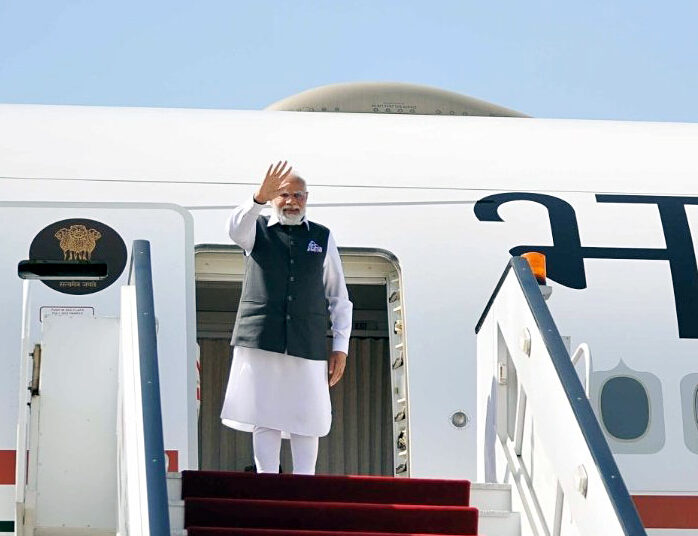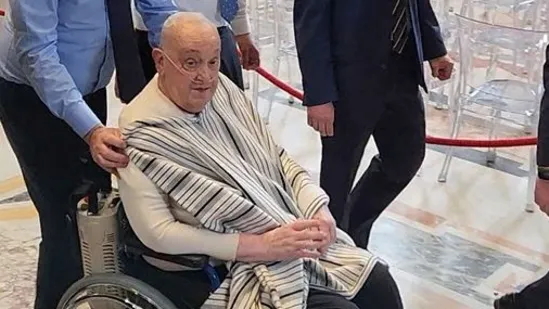Prime Minister Narendra Modi’s recent trips to the USA and France should be seen as a shot in the arm for India’s quest for permanent membership to the United Nations Security Council (UNSC). Both the US and France, which are permanent members of this elite global body, not only reaffirmed their unwavering support for India’s permanent membership in the UNSC, but also vowed to work with other P5 nations having veto power and several other countries to ensure that New Delhi achieves its ultimate goal. This augurs well for India’s ongoing diplomatic campaign to drum up global support for its UNSC aspirations. In June, US president Joe Biden during a meeting with PM Modi reiterated Washington’s support for New Delhi’s permanent membership in the United Nations Security Council. The joint statement released by India and US read, “In this context both sides remain committed to a comprehensive UN reform agenda, including through expansion in permanent and non-permanent categories of membership of the UN Security Council.” “Sharing the view that global governance must be more inclusive and representative, President Biden reiterated US support for India’s permanent membership on a reformed UN Security Council (UNSC),” the joint statement read. Similarly, PM Modi’s recent visit to France was also fruitful in terms of India’s UNSC campaign. French President Emmanuel Macron backed India’s bid for permanent membership in a reformed UNSC. France also backs India’s bid for entry into the Nuclear Supplier Group (NSG).
In fact, PM Modi has been at the forefront of efforts at the various international forums and during bilateral meetings with global leaders to push for urgent long-pending reform of the UNSC. PM Modi has been explaining logically how India rightly deserves a place at the UN high table as a permanent member. Only hours ahead of his visit to France, PM Modi had said India, now the most populous country, “needs to regain its rightful place”. This was seen as a strong push for permanent membership of the country in the UN Security Council. “The issue is not just of credibility, but something much larger. How can the UN Security Council claim to speak for the world when its most populous country and its largest democracy is not a permanent member?” PM Modi had said in an interview with French publication Les Echos. This is how PM Modi has, relentlessly, been working to convince and persuade the global leaders to ensure that India gets permanent status on the UNSC. PM Modi has also asked all ministers and diplomats to push for India’s claim to permanent membership to the UNSC. External Affairs Minister S. Jaishankar has always made it a point to highlight this issue at various global platforms and on every available opportunity. Jaishankar recently said that India has been a non-permanent member of the UNSC for almost 16 years and now the country emerging as an economic superpower will soon get a permanent membership. Jaishankar’s observation should in fact be seen as a strong indicator that India’s diplomacy for UNSC ambition has gained the needed momentum. What India needs to do is address the obstacles that China creates. Some western countries still continue to have reservations about India’s bid. Jaishankar also pointed it out, saying that India despite having all credentials to get a permanent membership in the UNSC has been denied the berth because of opposition from some “vested interests”. “But the westerners cannot keep their doors closed for India for long,” he said. Only a few months ago, the French ambassador to UN Nicolas De Riviere at a UN Security Council open debate said that his country “supports the candidacy of Germany, Brazil, India, and Japan as permanent members”. The UK also recently once again called for the expansion of the UN Security Council’s permanent seats to include India, Brazil, Germany and Japan as well as African representation, underlining that it is high time the powerful UN body entered the 2020s. Permanent Representative of the United Kingdom to the United Nations and President of the Security Council for the month of July Ambassador Barbara Woodward’s comments came as she briefed UN correspondents on the programme of work of the Security Council for the month.
Indian diplomats and envoys never minced words when it came to criticising the approach of the United Nations. India recently lashed out at the U.N. system with its most scathing attack thus far even as another year of meetings on reforming the United Nations — and particularly the question of the expansion of the Security Council — came to a close in June. In a speech at the UNSC this week, the Indian Permanent Representative Ruchira Kamboj called the UN Charter “anachronistic”, adding that it has failed in handling the Covid-19 pandemic, the Ukraine war and terrorism. The Indian envoy expressed displeasure over the reforms delay. In the light of these developments, it can be said that Indian diplomacy for the UN reforms and New Delhi’s permanent membership in reformed UNSC is moving in the right direction.

















